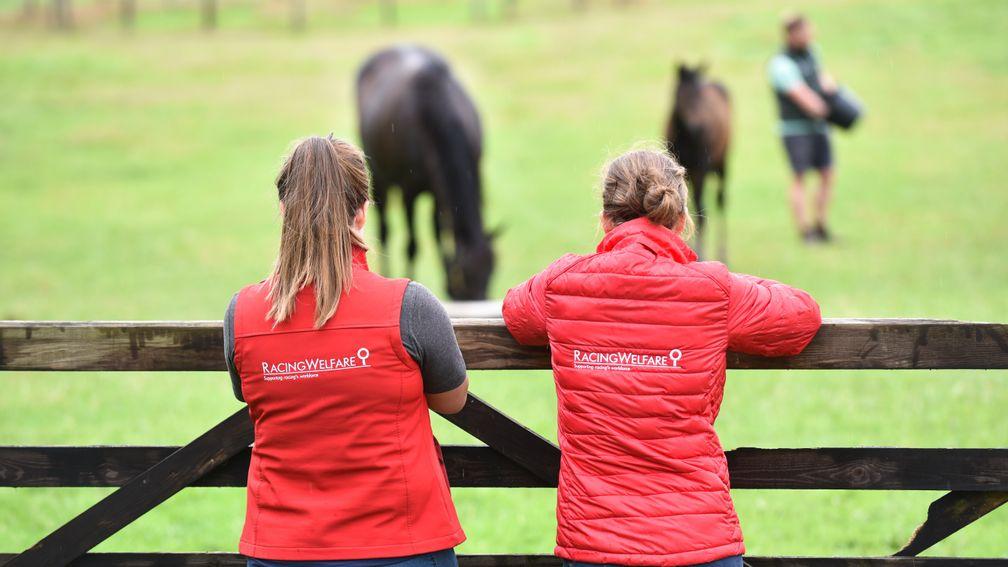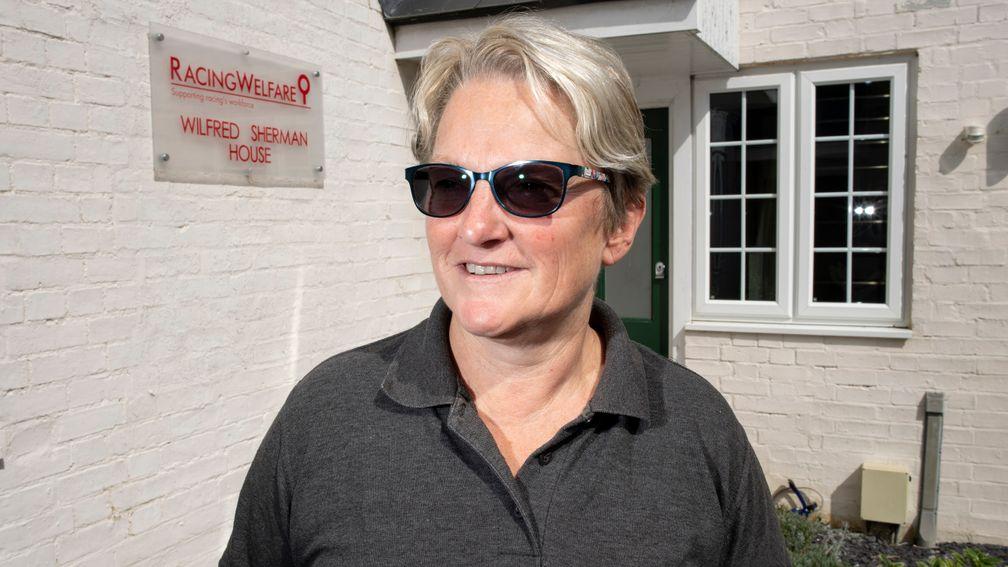How we stepped up to support people in the pandemic at Racing Welfare
The chief executive of Racing Welfare emphasises all the help available

Last week should have been the fifth Racing Staff Week – our celebration of all those who work to bring our wonderful sport to life.
And, while our campaign to highlight the week may have been put on hold due to Covid-19, the purpose behind it remains. So now seems a good time to reflect on what has been and what is yet to come.
We called it Racing Staff Week because it seeks to shine a light on the passion, dedication and skill of those largely unseen stars employed in racing and thoroughbred breeding. It is for all of these people that Racing Welfare exists.
The term 'racing staff' refers to anyone in training yards, but also encompasses the scores of other roles fulfilled by a much wider pool of people at studs, racecourses, sales rings and offices. Racing Welfare is there for all of them to turn to when in need of help, throughout their careers and into retirement.
We do not work in isolation in this role. Rather, we complement the support of organisations like the Injured Jockeys Fund for all individuals who currently hold, or have ever held, a jockey's licence. It is through this dovetailed approach that British racing offers a world-leading welfare provision.
Through the course of 2019, Racing Welfare helped 2,520 people, a huge increase from the average 800 we were helping each year prior to 2015. In the first six months of this year we provided support to more than 3,000 people.
One of the things of which I am most proud has been the speed with which we have been able to respond to the pandemic, adapting our services to maintain both availability and accessibility. We quickly streamlined our grants application process to assess and help anyone in need of immediate financial assistance. The digitalisation of Racing's Occupational Health Service meant that, despite seeing a 90 per cent drop in caseload during the early weeks of lockdown, the service has now bounced back to near previous levels.
It is at times like these that we are also able to fully appreciate the extraordinary commitment and sense of purpose of our teams. We all do what we do because we want to make a positive difference to people's lives. We want to improve, do more, do better; that is our culture. We set up new project teams to meet the most urgent needs of racing's people. Our housing team were equipped with PPE and continued to support our young and most vulnerable tenants. We were geared up and ready to go.

'Racing Conversation', a Facebook-based community group, was also set up to replace our regular activities for retired racing people. The group currently has 215 members and features weekly live broadcasts from the likes of Ed Chamberlin, Richard Johnson and Bob Champion.
Our rapid and focused response was the result of a planned strategy to provide preventative services. A good example of that shift is our 'Be The Best You' campaign, which started a couple of weeks ago. It aims to highlight small changes which can have a huge impact on your life and how Racing Welfare can help you make them.
Our Workforce Wellbeing programme launched following the award of £3.89 million, over three years, by The Racing Foundation in January 2019 and was a key milestone in our move towards preventative, holistic services. It includes four projects: Cats (the Careers Advice and Training Service), Racing's Support Line, Racing's Occupational Health Service and mental health support.
One scenario might be someone who is off work following an injury. Their initial problem is physical, but the ramifications of this can be wide-reaching. Isolation, possibly caused by being removed from normal working networks, is a recognised precursor to poor mental health, as is financial uncertainty. Should the injury prevent them from being able to do their job, Cats offers free career support and funded training opportunities to ensure that they are able to remain working in the industry. Racing's Support Line is a 24/7 route into our services and offers a listening ear any time of the day or night.
Workforce Wellbeing encompasses our Mental Health First Aid courses too. Until the pandemic, these were being delivered by two members of Racing Welfare's team, both of whom are accredited by Mental Health First Aid England. These courses are subsidised and last year 102 people from racing workplaces qualified as mental health first aiders. A further 158 people attended half-day awareness courses to gain a better understanding of what mental health is and how to spot the signs of someone who might be struggling.
Without question, the tragic events of recent weeks have focused the mind on the importance of mental health support. So many of life's challenges can affect our mental health, which is why it's important to provide such a wide range of services.
We aim to help people early and that could be by reaching out to them to stave off the loneliness generated by ten weeks in lockdown, or getting them back to work as quickly as possible through our Occupational Health Service.
I would encourage anyone in need of assistance to call Racing's Support Line on 0800 6300 443 and we can help provide access to the right specialist services. But if your call is urgent and there is an immediate perceived danger to life, then you should be calling 999.
This for me is what defines Racing Welfare; we are here to enable people to get the help they need, to give them the best opportunity to thrive professionally and personally.
Dawn Goodfellow is chief executive of Racing Welfare
Read more from our columnists:
Speaking out about personal suffering is heroic - and you won't regret it
BHA chair on why diversity needs to be at the heart of racing's recovery plan
Lord Grade: how we're trying to protect racing while tackling gambling harm
Members can read the latest exclusive interviews, news analysis and comment available from 6pm daily on racingpost.com
Published on 6 July 2020inComment
Last updated 18:16, 6 July 2020
- The whole shape of the Irish Flat season is being defined by one man only - and even his main targets lie elsewhere
- Analysis: Flutter and 888 have enjoyed contrasting fortunes but they still have things in common
- Only a baby step but an important one if racing is to keep some of its David v Goliath moments
- There are so many great betting opportunities on Saturday - here are my best bets including a very strong Curragh fancy
- Coolmore and Godolphin spare the sport some embarrassment - and not for the first time
- The whole shape of the Irish Flat season is being defined by one man only - and even his main targets lie elsewhere
- Analysis: Flutter and 888 have enjoyed contrasting fortunes but they still have things in common
- Only a baby step but an important one if racing is to keep some of its David v Goliath moments
- There are so many great betting opportunities on Saturday - here are my best bets including a very strong Curragh fancy
- Coolmore and Godolphin spare the sport some embarrassment - and not for the first time